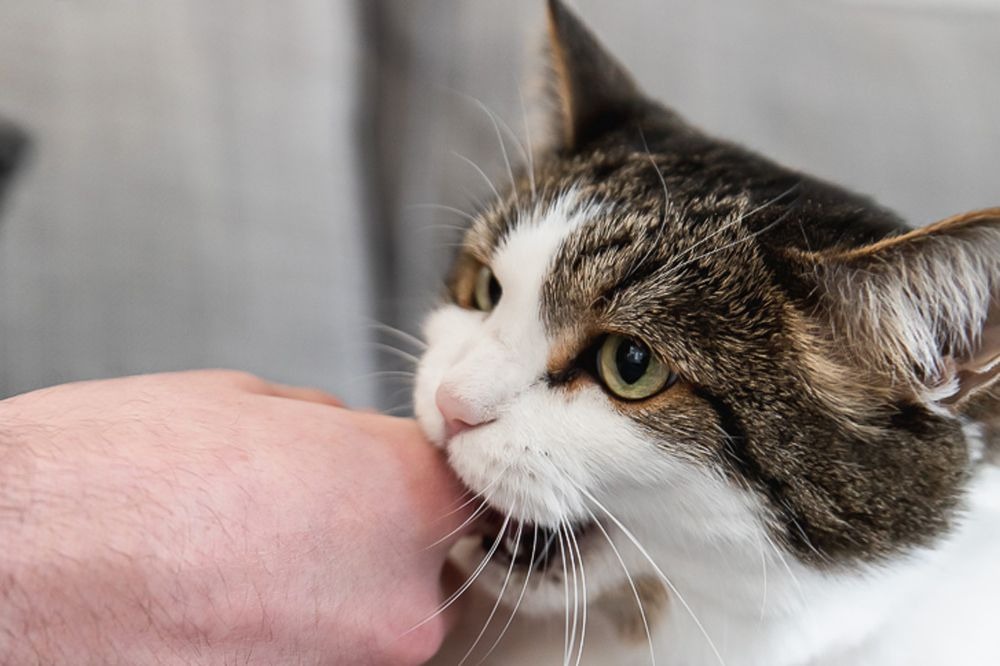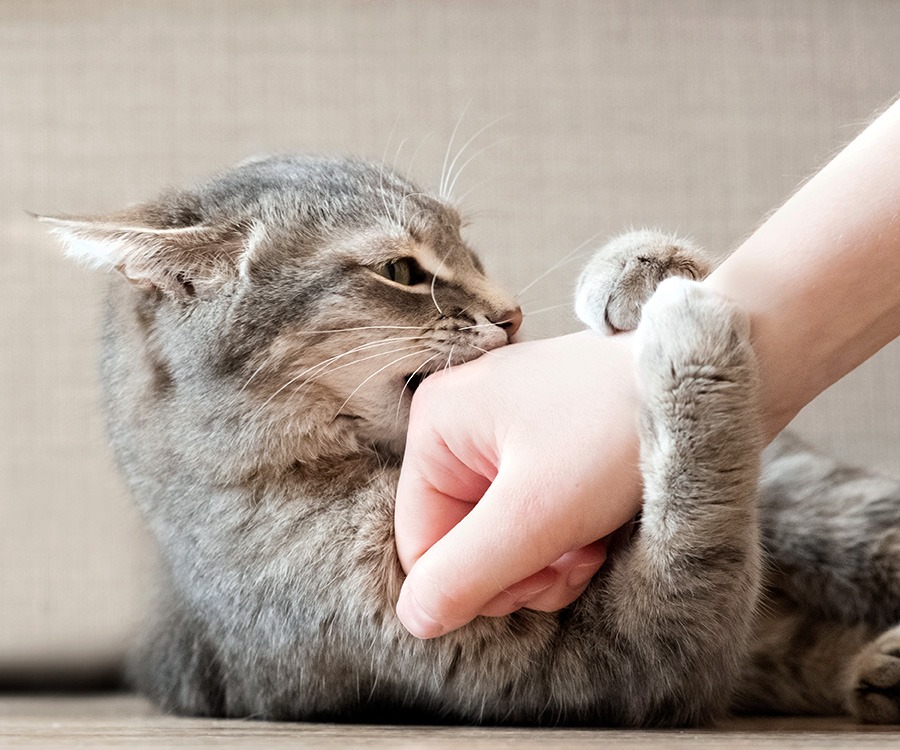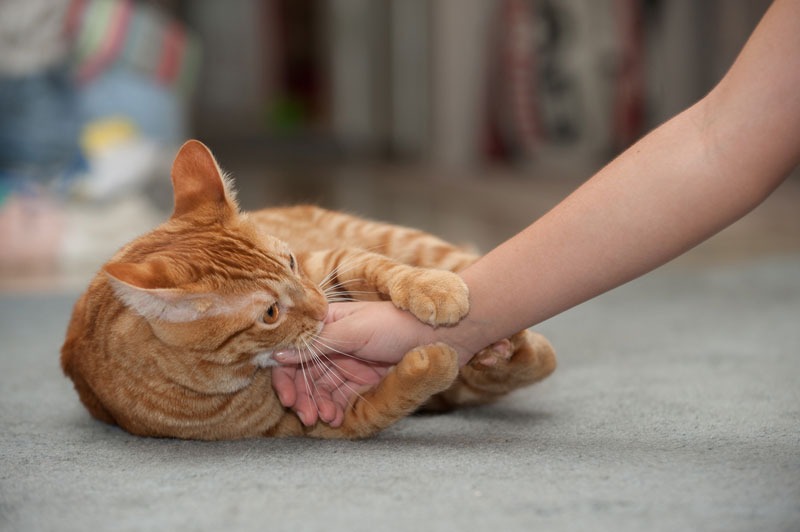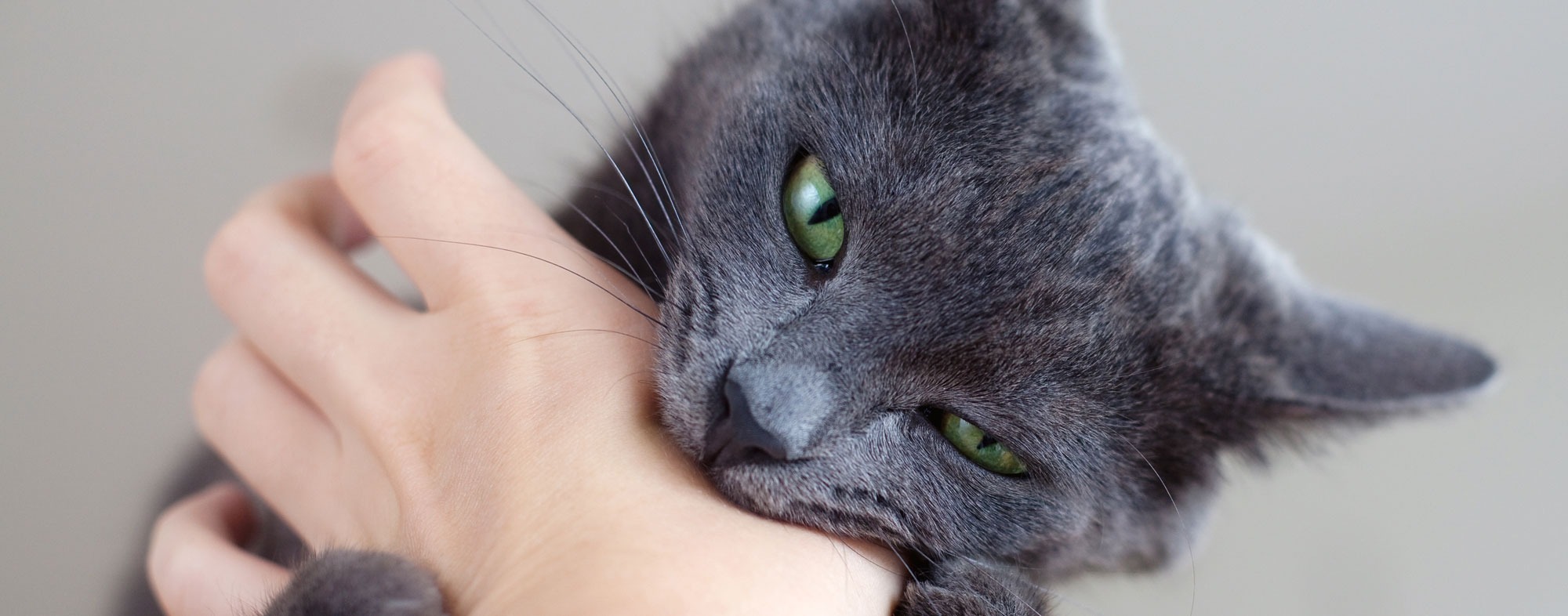Whether it is an act of love or a self-defense movement, biting is a problem when it comes to cats. To solve the problem, you must first examine what makes your cat bite, and then address the underlying problem.
Cats – especially kittens – engage in rude games such as stalking, hunting, falling, clapping, kicking and biting. This will not only help you improve your hunting skills, but is also an important part of the social game. Unfortunately, this friendly behavior can leave scratches that can get infected. Biting can also be a form of communication for cats and your cat can use her teeth to tell you something — that she is hungry, wants you to open a door, or the litter box needs to be cleaned.

If your pet is trying to take you somewhere or meow immediately after the bite, then most likely it is aimed at drawing your attention to his needs. Cats also bite when they feel stressed or anxious. This may be due to loud music or children’s accommodation, up to the introduction of a new pet into the household. Animals also bite to assert dominance, and your Cay can use this behavior to declare himself the Head of the household. You will know that your pet is trying to be Alpha if his bite is not playful, that he is not trying to snuggle up after, or that he refuses to back down.
To prevent your pet from biting, you must first assess what is causing the behavior. For example, if Kitty uses her mouth to defend herself against exuberant children, try placing your pet in a separate room before you arrive. Keep your home as calm as possible and minimize changes if biting your pet seems to be stress-related. If your cat bites as part of play time, provide him with a lot of toys and other sources of enjoyment.

If you put your cat into play about twice a day with a catnip mouse, fishing rod or other toy, not only will your hunting instinct be distracted from your hands and feet, but it will also strengthen the bond that you share with your pet. You might even consider getting a second cat for your pet to play with or building him an outdoor enclosure to burn extra energy. And remember-never use your fingers as a toy when playing with your cat.

While you should never knock or scream at your pet, you can clap your hands and firmly say “no” when he bites. When playing, put your cat in “Timeout” by leaving the game immediately and leaving. You can also keep a spray bottle nearby and use it immediately after your cat bites. Some owners manage to have toys at hand to attract the attention of a biting cat. With constant training, your pet needs to adjust his biting behavior.







